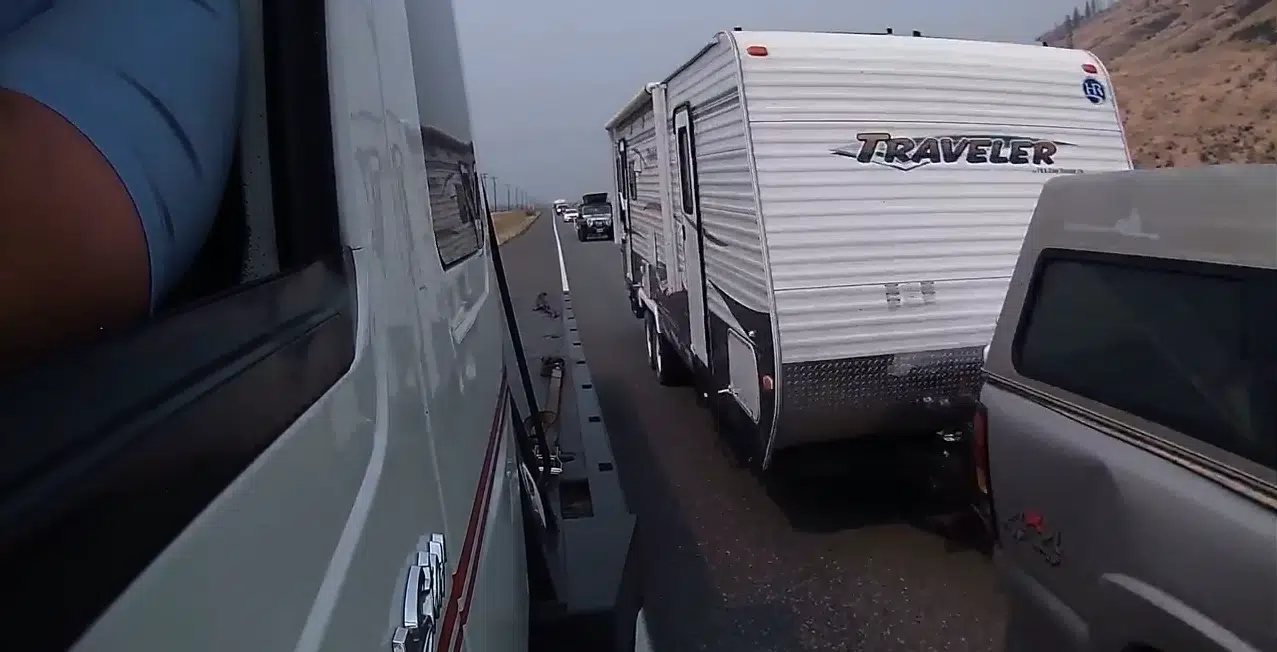
Tow truck operator: ‘Slow down, move over’ message not sinking in
KAMLOOPS — A Kamloops tow truck operator is speaking out after seeing one too many close calls at the side of the road.
Jordan Brawn, an 11-year employee of Don’s Towing, recorded a video at a work scene at the side of the Trans Canada Highway Wednesday, Oct. 24.
Brawn was attending to a city transit bus that had broken down near the Peterson Creek Bridge.
The video shows very few motorists slowing down or moving a lane away from the shoulder, as per B.C. law.


